National working session for the conservation & sustainable management of sharks and rays in Madagascar |
Twenty-five experts from around Madagascar, including scientists from WCS, representatives of Government, researchers, and NGO partners met during a national working session for the conservation and sustainable management of sharks and rays in Madagascar,
on September 7, 2017. The objective of the meeting, which was financed by the Global Partnership for Sharks and Rays, was to identify priority actions in relation with sharks and rays and the issues on their conservation and to discuss how different actors in Madagascar can better coordinate their efforts.
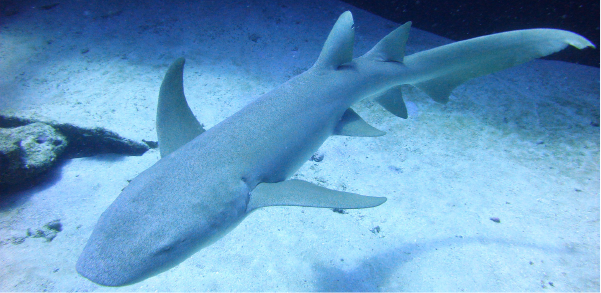
|
Participants discussed a range of issues concerning the protection of these species such as the low awareness of laws relating to the exploitation of sharks and rays, the threats to sharks and rays from small-scale and industrial fishing and the urgent need to collect additional data on shark and ray ecology and catches.
The meeting was also marked by the creation of a national working group for the conservation and sustainable management of sharks and rays. This working group, which includes the participants in the working session as well as representatives of fishers groups, will work over the next few months to develop a national roadmap for shark and ray conservation and sustainable management.
We would like to thank the Global Partnership for Sharks and Rays for their support of shark and ray conservation activities in Madagascar and the Western Indian Ocean, and stay tuned for updates from the next meeting of the national working group.
|
|
|
|
Health and Environment Festival in Makira |
|
In the presence of the Chief of
Maroantsetra District, WCS organized
a three-day health and environment
festival at Beanana, a remote village
close to the Makira Natural Park,
from August 25 to 27, 2017. The event was an opportunity for celebration, exchange, encounter, and discovery for the surrounding local communities, village associations, and partners who are involved making links between human health, population, and the environment.
Participation was free and the program was designed for a wide audience, allowing people to enjoy music, dancing, and shows by about 50 artists. It was exciting to see the population's enthusiasm in participating in the different contests, which were in keeping with the theme "Miaro atiala mitsinjo lavitra, miaro fahasalamana mitsinjo taranaka" ("To protect the forest is to secure the future of next generations; to care for one's health is to take care of one's offspring"). Competitions included folk dancing, songs, sports, radio talent contests, and a "tatao rano" race - running with a bucket of water on the head!
|
In collaboration with the District Health Service team, a mobile clinic was also made available during the festival, and provided free medical check-ups to
362 people. Children benefited from projections of cartoons designed to raise awareness about hygiene. The local communities' commitment to natural resource conservation was particularly evident through the District Chief's active participation in a debate on "Private and public partnerships in the natural
resources conservation" with local authorities, local community members and associations, and the WCS team. Discussions focused on community-based conservation and alternatives to the different pressures.
The objective of the festival was to entertain communities
while encouraging them to become
agents of change with regard to natural resource conservation. WCS is sincerely grateful to the Direct Aid Program of the Australian High Commission in Mauritius and AusAID, and the Tany Meva Foundation for their financial support of our work.
|
|
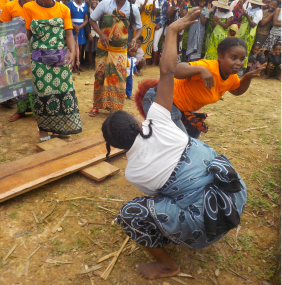
|
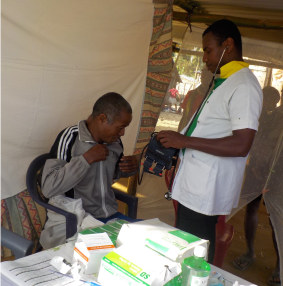
|
|
|
|
Restoration of livelihoods and reinforcement of the monitoring and surveillance in and around Makira Natural Park |
|
|
After the passage of Cyclone Enawo in March 2017 that made landfall in northeast Madagascar, the Wildlife Conservation Society has been working to restore the livelihoods of affected communities living around Makira Natural Park.
In July 2017 vegetable seeds (tomatoes, onions, lettuce, cucumber, eggplant...) were provided to the most affected villages, and technical support has been provided by WCS field agents during the installation of school vegetable gardens.
Added to this, 12 new patrol rangers have joined the team in order to increase the coverage of surveillance activities. For the first time in the history of
|
Makira Natural Park, one female ranger, Augustinah, is among the team. They all have been trained on Spatial Monitoring and Reporting Tool (SMART) and on ecological data collection and are carrying out regular patrol missions in the Park. Two workshops were also organized in April and
June 2017 to monitor the resilience of the Socio-Ecological Production Landscape (SEPL) in southeast watershed of Makira Natural Park. There were 21 participants from local communities that discussed the diversity of land use systems, ecosystem protection,
|
agricultural biodiversity, governance, social equity, and livelihoods and well-being. We would like to take this opportunity to thank our partners at the GEF Satoyama program for their ongoing support of WCS's work! 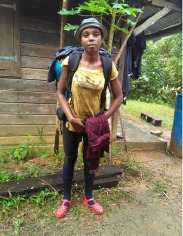
|
|
|
|
|
|
National MIHARI forum 2017 |
Over 170 community representatives brought together during the fourth annual National Forum organized by the MIHARI Network - a national network of locally managed marine areas (LMMAs) - held from July 28 to August 1, 2017 in the city of Fort Dauphin, southeastern Madagascar. Established in 2012, the objective of the MIHARI network is to exchange learning and experiences across communities that are developing initiatives for local marine and fisheries management. Around 400 people from coastal communities across Madagascar attended the event.
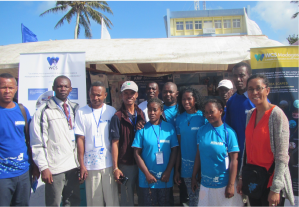 | 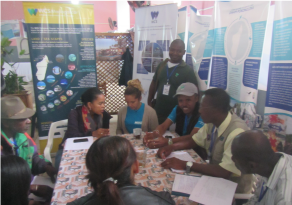 |
The five-day meeting was marked by the active participation of 10 WCS supported attendees from the 29 LMMAs in the sites co-managed by the Wildlife Conservation Society with local communities. They were actively engaged in discussions as panelists during the side events. Clarisse, from the Control and Surveillance Committee of the Ankivonjy Marine Protected Area (MPA) in NW Madagascar represented WCS as a female leader in the marine and fisheries sector. Ndimby, the president of the Soariake Association that co-manages the Soariake MPA in SW Madagascar, and Freddy, a representative of a LMMA in Mananara in NE Madagascar took part in the discussion about revolving fund, and WCS staff was actively engaged in a side event about the monitoring of turtles. Community representatives and WCS staff left the forum with a better understanding of the activities and challenges of marine resource management and strong relationships with other partners in the MIHARI Network. We look forward to participating in the
2018 forum and would like to thank the MIHARI Network for organizing this year's event!
|
|
|
|
Reopening of the octopus reserve |
|
|
Since 2008, the Wildlife Conservation Society has been supporting the Soariake MPA in SW Madagascar with the aim of protecting the site's biological, ecological, and socioeconomic values by reducing threats to marine resources that cause the degradation of the environment and the living conditions for local communities. As part of our work, we support local communities to adopt management measures - such as seasonal closures of the fisheries - that ensure the long-term sustainability of marine resources in the MPA.
The Wildlife Conservation Society took part in the annual opening of the octopus fishery on August 22-23 across the Soariake Marine Protected Area. The event was led by the Regional Direction of Marine Resources and Fisheries with the participation of local authorities, the community managers of Soariake, local communities, and other organizations.
The result was really encouraging: the participants caught 4195.8 kilograms of octopus with a maximum weight of seven kilos per octopus. In addition,
|
670.4 kilograms of fish, 67 kilograms of squid, 8.1 kilograms of lobster, and
15 kilograms of sea cucumbers were fished during these two days although the fishing was principally for octopus.
On the first day, 2,000 people joined in the opening of the five octopus reserves (Ankaratapaka Ankarahake, Andanahitse Nangatsambo, Nanohofa-Mareranokely, Anjokozoko, and Nosy Ve-Ambatomanoko) in the Soariake MPA.
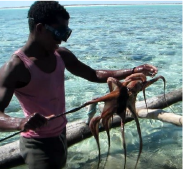
|
|
|
|
|
|
|
Contact:
Alison CLAUSEN - Country Director
Wildlife Conservation Society
Villa Ifanomezantsoa
Près Lot II A 78 D Soavimbahoaka Po Box 8500
Antananarivo 101 - Madagascar
Tel: (261-20) 22-597-89
Fax: (261-20) 22-529-76
e-mail: wcsmad@wcsmad.org
|
|
|